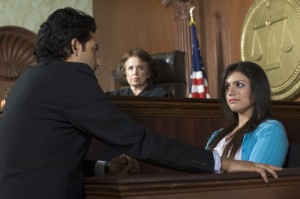 Tell the truth
Tell the truth
Deception of any type will ruin you before a jury. So never say something you know is false. Try to be as accurate as possible, but if you are mistaken, make sure that you clarify the fact that it was an error and not a lie. Errors can be understood. Lies will lose the case.
Do not guess
Do not estimate if you can avoid it. If you cannot be reasonably accurate, indicate you don’t know enough to honestly answer the question. A good adverse attorney can turn a guess into a deliberate falsehood and make an honest mistake into a lie.
Answer the question
You can never give a good answer unless you understand the question. Listen carefully. Do not answer what you “think” the question was. If in doubt, ask that the question be repeated. Do not give snap answers without thinking and do not assume anything.
Take your time
Do not let anyone pressure you to rush. Think carefully about your answer and always make sure you have thought your answer through before saying it out loud.
Answer only the question asked
Do not volunteer anything that is not an exact response to the question asked. Be as brief as possible. Answer only what was asked and nothing more.
Speak loudly and clearly
There is a stenographer that will be taking down everything that you say for the record. It is important that you speak loudly and clearly so that she may accurately and easily understand you.
Don’t nod your head
Give an audible answer. Shaking your head cannot be recorded by the stenographer.
Do not look for help from your lawyer
When you get in a bind, do not look over at your lawyer with a plaintive glance. It gives the impression that you have been wounded and your credibility will be damages. Answer the question to the best of your ability and move on. In many cases, your attorney can clear things up through his or her line of questioning to you.
Know the basics
Know personal information about yourself. You will be viewed as insensitive if you don’t remember the age of your children, how long you have been married, and other questions. Also, you will often be required to answer questions about your past residences and educational background. If you are prepared to answer these questions, the deposition will take less time and be much easier on you.
Don’t argue with lawyers
Always take the high road. The more professional you can appear, the greater impact it will have.
Don’t lose your temper
Lose your temper and you may well lose the case. When you are angry, you cannot think clearly. Do not let a lawyer cause you to lose your cool. Many any attorneys are trained to get a rise out of you to damage your credibility and appearance. If you stay calm and collected, you have helped your case.
Admit to talking with your lawyer
It is not only proper, but necessary to go over your testimony with your attorney. Do not only admit talking to your attorney, but do it with pride, showing your preparation.
Be courteous
It is very difficult to beat up on someone who is being polite and kind. You will win the favor of the jury if you are courteous and the lawyer appears to be picking on you.
No jokes
Lawsuits are serious. If you are too light, it may well send the signal that you don’t care much about the case and that it is not very important to you. If something funny does happen, smile like everybody else. Just make sure you don’t laugh loudest or last.
Be yourself and relax
The less artificial you are, the more the jury can identify with you. Relax as best you can and appear your natural self to the degree that you can.
Use ordinary language
Whenever possible do not use technical words and phrases unique to your job. Jurors like to hear the facts in words they can understand. “Car” is better than “vehicle.” “Wreck” is better than “automotive collision.” Simple words and sentences are universal and more appealing.
Dress appropriately
Do not come to your deposition dressed in any way that draws attention. Simple, conservative clothing is best. Do not wear anything that will detract jurors being able to give their full attention to your testimony. Remember, many depositions are videotaped, so it is possible that the jury will see your attire.
Be professional
The more you can look and speak professionally, the greater chance you have to get the jury to respect and admire you. The more you are respected and admired, the more likely it is that the jury will accept your testimony. Create an atmosphere of trust and confidence.
Attendance
Please be advised that children/grandchildren are not to attend a deposition with you. Please make other arrangements for your children/grandchildren during this time so you can focus on the testimony and the questions asked of you whether in court or in a deposition. Neither our office nor most other attorney’s offices are equipped to care for children/grandchildren during a deposition.



